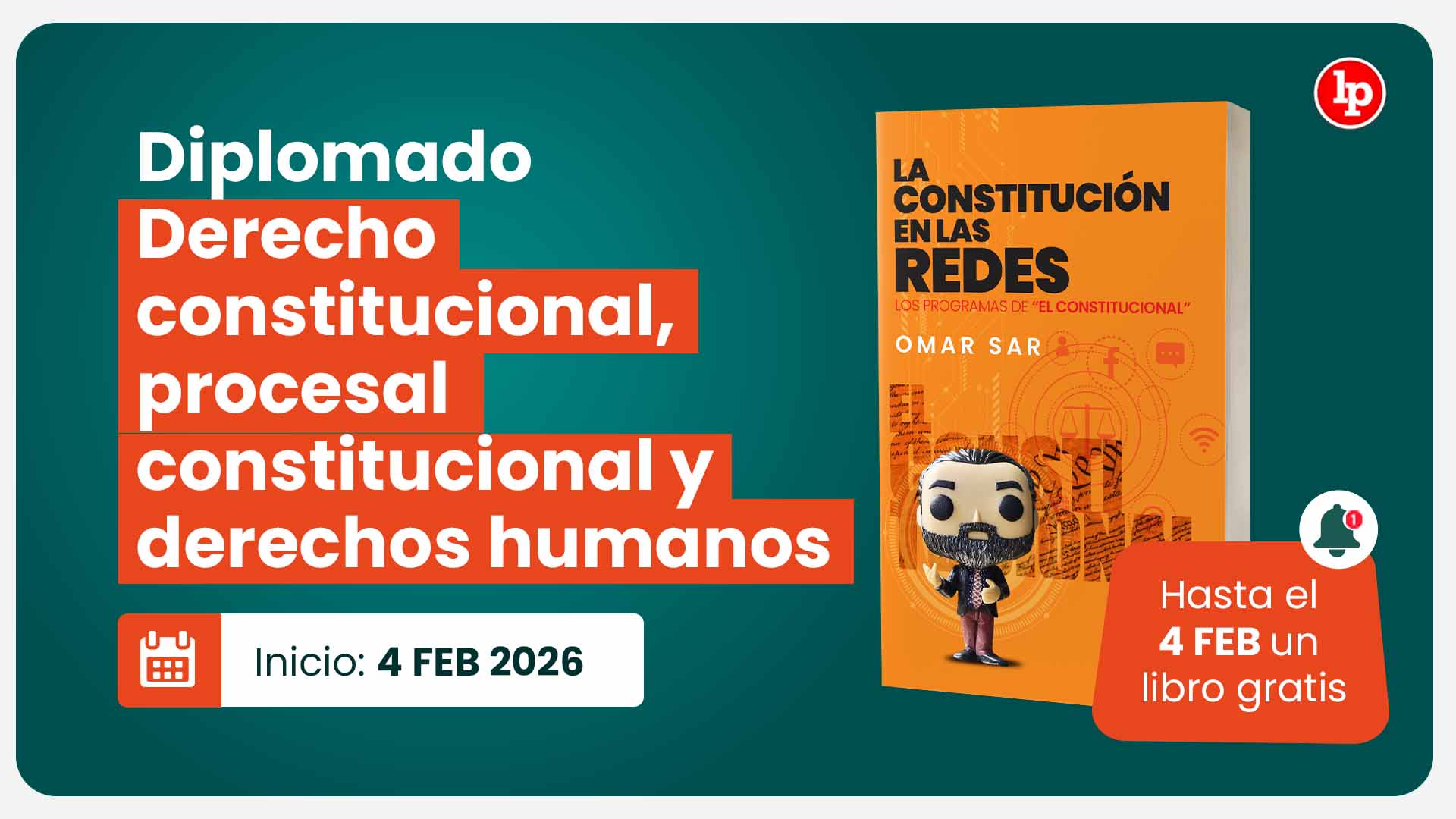Fundamentos destacados: 87. Los malos tratos que alcanzan dicho nivel mínimo de gravedad suelen implicar lesiones corporales reales o sufrimiento físico o mental intenso. Sin embargo, incluso en ausencia de estos aspectos, cuando el trato humilla o degrada a una persona, mostrando una falta de respeto o menoscabando su dignidad humana, o suscitando sentimientos de miedo, angustia o inferioridad capaces de quebrantar su resistencia moral y física, puede caracterizarse como degradante y también caer dentro de la prohibición establecida en el artículo 3 (véanse, entre otras autoridades, Vasyukov c. Rusia , n.º 2974/05 , § 59, 5 de abril de 2011; Gäfgen , citado anteriormente, § 89; Svinarenko y Slyadnev , citado anteriormente, § 114; y Georgia c. Rusia (I) , citado anteriormente, § 192). También hay que señalar que puede ser suficiente que la víctima sea humillada a sus propios ojos, aunque no a los ojos de los demás (véase, entre otras autoridades, Tyrer c. Reino Unido , 25 de abril de 1978, § 32, Serie A no. 26, y MSS c. Bélgica y Grecia [GC], no. 30696/09 , § 220, CEDH 2011).
88. Además, en vista de los hechos del caso, la Corte considera particularmente importante señalar que, respecto de una persona que se encuentra privada de su libertad o, más generalmente, que se enfrenta a agentes del orden público, todo recurso a la fuerza física que no haya sido hecha estrictamente necesaria por su propia conducta menoscaba la dignidad humana y es, en principio, una violación del derecho establecido en el artículo 3 (véanse, entre otras autoridades, Ribitsch , § 38; Mete y otros , § 106; y El – Masri , § 207, todos citados anteriormente).
103. En todo caso, el Tribunal subraya que una bofetada infligida por un agente de la ley a un individuo que está totalmente bajo su control constituye un grave atentado a la dignidad de ese individuo.
[Traducción de LP]
87. Ill-treatment that attains such a minimum level of severity usually involves actual bodily injury or intense physical or mental suffering. However, even in the absence of these aspects, where treatment humiliates or debases an individual, showing a lack of respect for or diminishing his or her human dignity, or arouses feelings of fear, anguish or inferiority capable of breaking an individual’s moral and physical resistance, it may be characterised as degrading and also fall within the prohibition set forth in Article 3 (see, among other authorities, Vasyukov v. Russia, no. 2974/05, § 59, 5 April 2011; Gäfgen, cited above, § 89; Svinarenko and Slyadnev, cited above, § 114; and Georgia v. Russia (I), cited above, § 192). It should also be pointed out that it may well suffice that the victim is humiliated in his own eyes, even if not in the eyes of others (see, among other authorities, Tyrer v. the United Kingdom, 25 April 1978, § 32, Series A no. 26, and M.S.S. v. Belgium and Greece [GC], no. 30696/09, § 220, ECHR 2011).
88. Furthermore, in view of the facts of the case, the Court considers it particularly important to point out that, in respect of a person who is deprived of his liberty, or, more generally, is confronted with law-enforcement officers, any recourse to physical force which has not been made strictly necessary by his own conduct diminishes human dignity and is, in principle, an infringement of the right set forth in Article 3 (see, among other authorities, Ribitsch, § 38; Mete and Others, § 106; and El‑Masri, § 207, all cited above).
103. In any event, the Court emphasises that a slap inflicted by a law-enforcement officer on an individual who is entirely under his control constitutes a serious attack on the individual’s dignity.
[Idioma original]
CASE OF BOUYID v. BELGIUM
(Application no. 23380/09)
In the case of Bouyid v. Belgium,
The European Court of Human Rights, sitting as a Grand Chambercomposed of:
Dean Spielmann, President,
Guido Raimondi,
Isabelle Berro,
Alvina Gyulumyan,
Ledi Bianku,
Nona Tsotsoria,
Nebojša Vučinić,
Vincent A. De Gaetano,
Paulo Pinto de Albuquerque,
Erik Møse,
Helen Keller,
Paul Lemmens,
Paul Mahoney,
Krzysztof Wojtyczek,
Faris Vehabović,
Egidijus Kūris,
Iulia Motoc, judges,
and Johan Callewaert, Deputy Grand Chamber Registrar,
Having deliberated in private on 8 October 2014 and 24 June 2015,
Delivers the following judgment, which was adopted on the lastmentioned date:
PROCEDURE
1. The case originated in an application (no. 23380/09) against theKingdom of Belgium, lodged with the Court under Article 34 of theConvention for the Protection of Human Rights and Fundamental Freedoms(“the Convention”) by two Belgian nationals, Mr Saïd Bouyid (“the firstapplicant”) and Mr Mohamed Bouyid (“the second applicant”), on 28 April2009.
2. The applicants were represented by Mr C. Marchand andMr Z. Chihaoui, lawyers practising in Brussels. The Belgian Government(“the Government”) were represented by their Agent, Mr M. Tysebaert,Senior Adviser, Federal Justice Department.
3. Alleging, in particular, that they were both slapped by police officerswhile they were in a police station, the applicants complained of degradingtreatment and argued that they were victims of a violation of Article 3.
4. The application was allocated to the Fifth Section of the Court(Rule 52 § 1 of the Rules of Court). In a judgment delivered on 21 November 2013 a Chamber of that Section declared the application admissible in respect of the complaint under Article 3 of the Convention and the remainder inadmissible, and unanimously found that there had been no violation of Article 3. The Chamber was composed of Mark Villiger, President, Ann Power-Forde, Ganna Yudkivska, André Potocki, Paul Lemmens, Helena Jäderblom and Aleš Pejchal, judges, and Stephen Phillips, Deputy Section Registrar. On 24 January 2014, under Article 43 of the Convention, the applicants requested referral of the case to the Grand Chamber. A panel of the Grand Chamber acceded to this request on 24 March 2014.
[Continúa…]
![[VIVO] Clase modelo sobre exclusión probatoria en juicio. Llena el formulario para recibir las diapositivas](https://img.lpderecho.pe/wp-content/uploads/2026/01/CLASE-MODELO-DIEGO-VALDERRAMA-MACERA-BANNER-218x150.jpg)
![[VIVO] Clase modelo sobre prueba nueva en juicio. Llena el formulario para recibir las diapositivas](https://img.lpderecho.pe/wp-content/uploads/2026/01/CLASE-MODELO-JUAN-ORTIZ-BENITES-BANNER-218x150.jpg)
![[VIVO] Clase modelo sobre actuación probatoria. Llena el formulario para recibir las diapositivas](https://img.lpderecho.pe/wp-content/uploads/2026/01/CLASE-MODELO-MASCARA.jpg-1-218x150.jpeg)
![La pericia psicológica en los delitos de naturaleza sexual no cumple únicamente una función de apoyo periférico o accesorio, sino que constituye un medio idóneo para apreciar la consistencia interna y externa del testimonio de la víctima [Casación 1998-2022, Áncash, f. j. 12]](https://img.lpderecho.pe/wp-content/uploads/2025/07/MAZO-DERECHO-PENAL-LPDERECHO-1-218x150.jpg)
![Indecopi multa a BBVA con más de S/1.5 millones por realizar llamadas spam [Resolución Final 083-2025/CC3]](https://img.lpderecho.pe/wp-content/uploads/2024/03/banner-bbva-logo-LPDerecho-218x150.jpg)
![Basta que el delito fin esté sancionado con una pena mayor a 6 años —esto es, que el marco punitivo del delito parta de dicho umbral—para que se configure la organización criminal, con independencia de que los demás delitos no alcancen ese tope mínimo (en aplicación de la Ley 32108) [Apelación 30-2025, Junín, f. j. 16]](https://img.lpderecho.pe/wp-content/uploads/2025/07/JUEZ-BALANZA-MAZO-CUADERNO-LPDERECHO-218x150.jpg)
![La congruencia de la sentencia no se vincula con la motivación, sino con la comparación entre lo pedido y lo resuelto, de modo que el juez no puede otorgar más, menos o algo distinto de lo solicitado, según la causa petendi y los fundamentos para estimar o desestimar [Casación 1331-2022, Lambayeque, f. j. 2]](https://img.lpderecho.pe/wp-content/uploads/2025/10/MAZO-LIBRO-JUEZ-LEY-LPDERECHO-218x150.jpg)

![Ley Orgánica del Registro Nacional de Identificación y Estado Civil (Ley 26497) [actualizada 2025]](https://img.lpderecho.pe/wp-content/uploads/2025/05/Ley-organica-del-registro-nacional-de-identificacion-y-estado-civil1-LPDERECHO-218x150.jpg)










![[Balotario notarial] La función notarial y los instrumentos públicos notariales: estructura, límites y naturaleza administrativa](https://img.lpderecho.pe/wp-content/uploads/2025/09/FUNCION-NOTARIAL-GESTION-PERU-LPDERECHO-218x150.jpg)
![[Balotario notarial] La representación y el poder en el Código Civil (poder general y poder especial)](https://img.lpderecho.pe/wp-content/uploads/2025/09/ACTOS-NEGOCIOS-JURIDICOS-ACTOS-LPDERECHO-218x150.jpg)
![[VIVO] Clase modelo sobre petición de herencia. Llena el formulario para recibir las diapositivas](https://img.lpderecho.pe/wp-content/uploads/2026/01/INTERMEDIACION-CLEIDY-BUTRON-RAA-LPDERECHO-1-218x150.jpg)
![[VIVO] Clase modelo sobre reinvindicación, mejor derecho de propiedad y accesión. Llena el formulario para recibir las diapositivas](https://img.lpderecho.pe/wp-content/uploads/2026/01/INTERMEDIACION-JULIO-POZO-SANCHEZ-LPDERECHO1-218x150.jpg)
![La indemnización por daños y perjuicios ocasionados por un despido incausado, no puede equiparse a las remuneraciones que se dejaron de percibir por esta causa de despido [Casación 18589-2023, Del Santa]](https://img.lpderecho.pe/wp-content/uploads/2024/04/despido-desconcierto-trabajador-laboral-LPDerecho-218x150.jpg)
![¿Qué ocurre si una entidad no entrega la información solicitada por el portal de transparencia o no responde dentro del plazo legal? [Informe Técnico 002766-2025-Servir-GPGSC]](https://img.lpderecho.pe/wp-content/uploads/2025/03/SERVIR-LPDERECHO-218x150.jpg)




![[VIVO] Clase modelo sobre La Constitución como eje del Estado constitucional de derecho: derechos fundamentales, organización del poder y mecanismos de control. Llena el formulario para recibir las diapositivas](https://img.lpderecho.pe/wp-content/uploads/2026/01/CLASE-MODELO-CHRISTIAN-DONAYRE-BANNER-218x150.jpg)


![Promueven el sistema integrado de transporte para reducir informalidad [DL 1707]](https://img.lpderecho.pe/wp-content/uploads/2024/03/transporte-publico-trafico-LPDerecho-218x150.jpg)
![Ley de Delitos Informáticos (Ley 30096) [actualizada]](https://img.lpderecho.pe/wp-content/uploads/2024/08/ley-de-delitos-informaticos-ley-30096-actualizada-LPDERECHO-218x150.jpg)
![Código Civil peruano [actualizado 2026]](https://img.lpderecho.pe/wp-content/uploads/2024/05/VENTA-OFICIAL-CODIGO-CIVIL-2024-LPDERECHO-218x150.jpg)
![Código Procesal Penal peruano [actualizado 2026]](https://img.lpderecho.pe/wp-content/uploads/2024/02/VENTA-CODIGO-PENAL-BANNER-POST-TAPA-DURA-LPDERECHO-218x150.jpg)
![Código Penal peruano [actualizado 2026]](https://img.lpderecho.pe/wp-content/uploads/2024/05/VENTA-CODIGO-PENAL-LPDERECHO-218x150.jpg)







![[VÍDEO] ¿Quieres postular a la Fiscalía? Estas son las preguntas que hacen en las entrevistas](https://img.lpderecho.pe/wp-content/uploads/2021/10/postular-fiscalia-preguntas-entrevista-LP-218x150.jpg)


![EXP. N.° 0022-2009-PI/TC LIMA GONZALO TUANAMA TUANAMA Y MÁS DE 5000 CIUDADANOS SENTENCIA DEL TRIBUNAL CONSTITUCIONAL En Lima, a los 09 días del mes de junio de 2010, el Tribunal Constitucional en sesión de Pleno Jurisdiccional, con la asistencia de los magistrados Mesía Ramírez, Beaumont Callirgos, Vergara Gotelli, Landa Arroyo, Calle Hayen, Eto Cruz y Álvarez Miranda, pronuncia la siguiente sentencia con los fundamentos de voto de los magistrados Vergara Gotelli y Landa Arroyo, que se agregan. ASUNTO Demanda de Inconstitucionalidad interpuesta por Gonzalo Tuanama Tuanama, en representación de más de 5000 ciudadanos contra el Decreto Legislativo N.° 1089. DEMANDA Y CONTESTACIÓN a) Demanda contra el Decreto Legislativo N.° 1089, que regula el Régimen Temporal Extraordinario de Formalización y Titulación de Predios Rurales Con fecha 01 de julio de 2009, se interpone demanda de inconstitucionalidad contra el Decreto Legislativo N.° 1089, que regula el Régimen Temporal Extraordinario de Formalización y Titulación de Predios Rurales, publicada en el diario oficial El Peruano el 28 de junio de 2008. Los demandantes refieren que “'sin entrar al fondo del contenido de la norma”, ésta fue promulgada sin efectuar ninguna consulta previa e informada a los pueblos indígenas, tal como lo ordena el Convenio 169 de la Organización Internacional De Trabajo (OIT), afectándose con ello los derechos fundamentales de los pueblos Indígenas, como el derecho a la consulta previa y el derecho colectivo al territorio ancestral, establecidos en los artículos 6, 15, 17 del mencionado convenio. De igual forma, expresan que no se tomaron en cuenta los artículos 19, 30 y 32 de la Declaración de las Naciones Unidas sobre los Derechos de los Pueblos Indígenas (DNUDPI) aprobado por la Asamblea General de la Organización de Naciones Unidas. Alegan que con dicha norma se afectan otros derechos establecidos en el Convenio N.° 169, como el derecho sobre las tierras de los pueblos indígenas (artículos 13 al 19), en el considerando que no se tomaron en cuenta medida que garanticen la protección de sus derechos de propiedad y posesión. Refieren que se afecta también el derecho a la libre determinación de las comunidades nativas, previsto en el artículo 17 del Convenio, que declara el respeto de sus formas tradicionales de transmisión de sus territorios. Por último, alegan que se estaría vulnerando lo previsto en el artículo 19 del Convenio en cuanto se afecta el derecho al desarrollo de políticas agrarias adecuadas para los pueblos indígenas. [Continúa...] Descargue la resolución aquí](https://img.lpderecho.pe/wp-content/uploads/2023/01/Logo-LP-con-fondo-guinda-LPDERECHO-1068x561.png)





![Código Penal peruano [actualizado 2026]](https://img.lpderecho.pe/wp-content/uploads/2024/05/VENTA-CODIGO-PENAL-LPDERECHO-100x70.jpg)
![Nombre del año 2026: Año de la Esperanza y el Fortalecimiento de la Democracia [Decreto Supremo 011-2026-PCM]](https://img.lpderecho.pe/wp-content/uploads/2022/12/palacio-gobierno-1-LPDerecho-100x70.png)

![[Balotario notarial] La función notarial y los instrumentos públicos notariales: estructura, límites y naturaleza administrativa](https://img.lpderecho.pe/wp-content/uploads/2025/09/FUNCION-NOTARIAL-GESTION-PERU-LPDERECHO-100x70.jpg)
![[Balotario notarial] La representación y el poder en el Código Civil (poder general y poder especial)](https://img.lpderecho.pe/wp-content/uploads/2025/09/ACTOS-NEGOCIOS-JURIDICOS-ACTOS-LPDERECHO-100x70.jpg)








![Constitución archiva proyecto de adelanto de elecciones del Ejecutivo. [Lea documento]](https://img.lpderecho.pe/wp-content/uploads/2023/03/constitucion-archiva-proyecto-de-adelanto-de-elecciones-del-ejecutivo-LPDerecho-324x160.jpg)